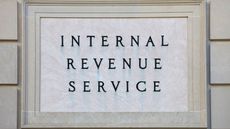Is Now a Good Time to Buy a House?
As interest rates rise and the housing market cools, you may be asking yourself whether you’re ready. Here are four key questions to help you decide.


Deciding whether to buy a house is one of the biggest financial decisions you’ll ever make. Not only is it a huge financial decision, it’s an extremely emotional one as well. Anyone who has put in an offer, experienced a bidding war and lost a house or who finally got their dream home can agree that the process can have great highs and frustrating lows.
The last few years have been increasingly confusing to potential home buyers. COVID brought on tremendous worry about the future of the economy, initially spurring home buyers to put a pause on purchases. Eventually, lockdowns and remote work and learning inspired many to seek additional space. That, coupled with a low-interest-rate environment and low inventory, spurred bidding wars and sent home prices soaring.
As the Fed is increasing interest rates, there is upward pressure on mortgage rates. The average rate on 30-year mortgages is above 6% in December, almost double what rates were this time last year. With a higher cost to borrow, the Mortgage Bankers Association reported that mortgage demand is 86% lower than it was last year, and they anticipate slowing housing demand for 2023.

Sign up for Kiplinger’s Free E-Newsletters
Profit and prosper with the best of expert advice on investing, taxes, retirement, personal finance and more - straight to your e-mail.
Profit and prosper with the best of expert advice - straight to your e-mail.
There are fewer bidding wars, and we are seeing price reductions. With all of this at play, you may be asking yourself if now is the right time to buy a house. The answer really depends on your needs and your current financial position. Here are four questions to ask yourself to see if you’re ready.
1. Are You Ready to Settle in One Location?
Buying a house is a long-term commitment, so it’s a good idea to think about whether you’re planning on making any big life changes in the near future. If you plan on switching jobs, getting married or having kids, it might be a good idea to wait on purchasing a home, as your needs will typically change when one of these major life events occurs. If you do end up purchasing a home, you should stay long enough to offset the cost of the transaction, such as closing costs, your selling agent’s commission and expenses to prep your home for a sale. Typically, that takes about five years.
Although not the end of the world, you probably don’t want to buy a house and then find out you have to move shortly after because you landed the job of your dreams elsewhere. The best time to take on a big asset, and potentially a big liability (hello, mortgage payments!), is when you feel stable in your life and are ready to put down roots.
2. Have You Looked Over Your Budget to See What You Can Afford?
Not only are mortgages expensive, everything else that goes along with owning a home adds up. When figuring out your budget and what it costs to own a home, don’t forget to add in things like property tax, insurance, homeowners’ association dues, additional maintenance costs — think lawn care, pool upkeep, home repairs, etc. — and perhaps the additional costs of utilities if you’re moving into a larger home. The cost of heating and cooling a large home, and water used for a garden and lawn, will obviously be more, so make sure you take those into consideration.
If you’re trying to figure out how much of your budget is OK to spend on housing, try this yardstick: Lenders usually require that the principal, interest, taxes and insurance expenses be less than 28% of your monthly gross income. Or you should consider discussing the purchase with a financial adviser, who can help guide you in the right direction and ensure all your bases are covered.
3. Have You Saved Enough for a Down Payment?
If you plan on taking out a loan to pay for your home, you’ll need to contribute some money toward the purchase price. The amount that you must put down depends on the type of loan that you take out. While most lenders require at least 3%, typical new home buyers put down 6%, on average.
You may hear 20% thrown around a lot; that’s because it’s the required down payment to avoid paying for mortgage insurance. This is insurance that protects the lender in case you fall behind on payments. In any case, know that the more you put down on a house, the less you have to borrow, and the lower your mortgage payments will be.
4. How’s Your Credit Score?
Having a good credit score will have a big impact on the ability of a lender to extend credit and the interest rate offered. A credit score above 670 is generally what lenders look for in an acceptable borrower; scores between 740 and 799 are considered very good; and a score of 800 and above is excellent.
Your credit score is something that you want to make sure to have in order before you apply for a mortgage. If your score isn’t where you’d like it to be, the best way to improve your score is to pay your credit card bills on time. Set up automatic payments so the payments don’t fall through the cracks when things get busy.
Credit usage is also an important factor and is a measurement of how much credit you use at any given point. You calculate credit usage by dividing the amount you owe across all your credit cards by your total credit limit. Experts say that you should keep this ratio below 30%. Also, keep in mind that credit history makes a big impact on your score as well. Don’t close those cards that you’ve held on to for a long time, as they can help contribute to a positive credit score.
Ultimately, only you will know if now is the right time to buy a house. By having your finances in order first, you can help make that decision more clearly and be able to take the leap when you find that special place you want to call home.
Halbert Hargrove Global Advisors, LLC (“HH”) is an SEC registered investment adviser located in Long Beach, California. Registration does not imply a certain level of skill or training. Additional information about HH, including our registration status, fees, and services can be found at www.halberthargrove.com. This blog is provided for informational purposes only and should not be construed as personalized investment advice. It should not be construed as a solicitation to offer personal securities transactions or provide personalized investment advice. The information provided does not constitute any legal, tax or accounting advice. We recommend that you seek the advice of a qualified attorney and accountant.
This article was written by and presents the views of our contributing adviser, not the Kiplinger editorial staff. You can check adviser records with the SEC or with FINRA.

Julia Pham joined Halbert Hargrove as a Wealth Adviser in 2015. Her role includes encouraging HH clients to explore and fine-tune their aspirations — and working with them to create a road map to attain the goals that matter to them. Julia has worked in financial services since 2007. Julia earned a Bachelor of Arts degree cum laude in Economics and Sociology, and an MBA, both from the University of California at Irvine.
-
-
 IRS is Targeting Promoters of Abusive Tax Schemes Kiplinger Tax Letter
IRS is Targeting Promoters of Abusive Tax Schemes Kiplinger Tax LetterTax Letter Tax schemes range from basic tax dodges to highly complex transactions.
By Joy Taylor • Published
-
 How to Save on Prescription Medication
How to Save on Prescription MedicationHow you can save money on prescription medication amidst rising prices.
By Erin Bendig • Published
-
 We Don’t Have to Let AI Win
We Don’t Have to Let AI WinJust as companies and employees evolved with tech advances in the past, we can do that again with AI, but employers need to focus on preparing their workforces to keep up.
By Neale Godfrey, Financial Literacy Expert • Published
-
 Five Ways to Get Key Employees to Ride Out Big Changes
Five Ways to Get Key Employees to Ride Out Big ChangesBusiness transitions can be difficult on workers, but company owners can take steps to incentivize key employees to stick around during times of change.
By Kris Maksimovich, AIF®, CRPC®, CPFA®, CRC® • Published
-
 Are You Overlooking Your Most Valuable Retirement Asset?
Are You Overlooking Your Most Valuable Retirement Asset?Selling your home and relocating could become a bigger part of the retirement conversation, given how real estate markets have boomed over the last decade.
By Julie Virta, CFP®, CFA, CTFA • Published
-
 Insuring Your Plan for Retirement Income
Insuring Your Plan for Retirement Income‘Longevity insurance’ ensures you don’t run out of money in retirement. How to figure out how much you need, the types of annuities to use and when the income should kick in are tricky questions, though.
By Jerry Golden, Investment Adviser Representative • Published
-
 Pros and Cons of Fixed Index Annuities as Retirement Tools
Pros and Cons of Fixed Index Annuities as Retirement ToolsWith so many FIA products available, each with its own contract terms and varying rates, it's crucial to invest in one that fits your retirement plan.
By Cliff Ambrose • Published
-
 Which Retirement Accounts Should You Withdraw From First?
Which Retirement Accounts Should You Withdraw From First?Here’s a standard order for when you should tap which account when you’re in retirement.
By Evan T. Beach, CFP®, AWMA® • Published
-
 Nervous About the Markets and Economy? Consider History
Nervous About the Markets and Economy? Consider HistoryTo put things in perspective, focus on what you can control and remember that the ups and downs of the markets and economy can be cyclical.
By Erin Wood, CFP®, CRPC®, FBSⓇ • Published
-
 Expecting a Recession? Seven Steps to Help You Power Through
Expecting a Recession? Seven Steps to Help You Power ThroughInstead of panicking, consider opportunities to add flexibility and resilience to your financial position. These steps can help you enter a potential recession from a position of strength.
By Christian Mitchell • Published









